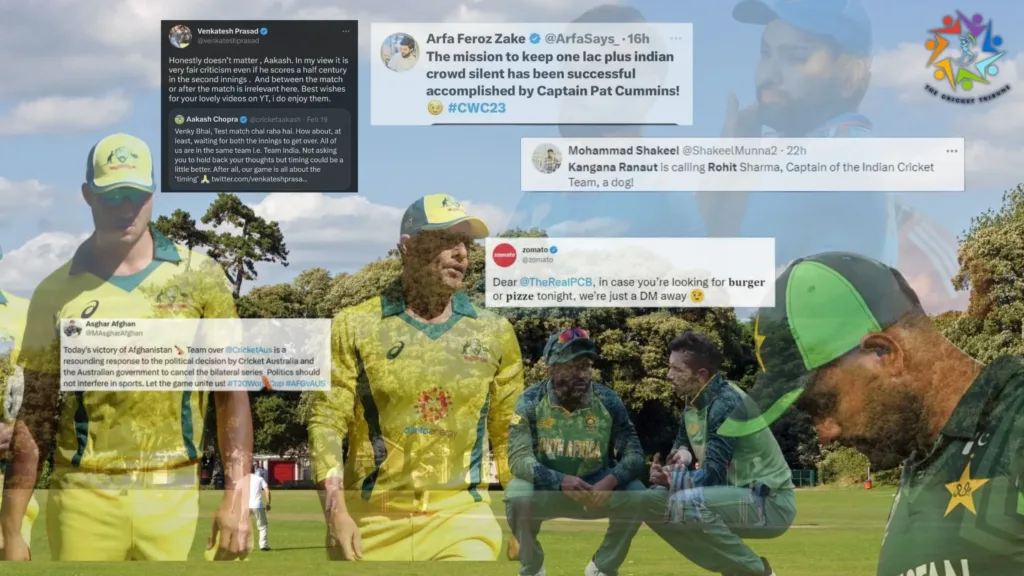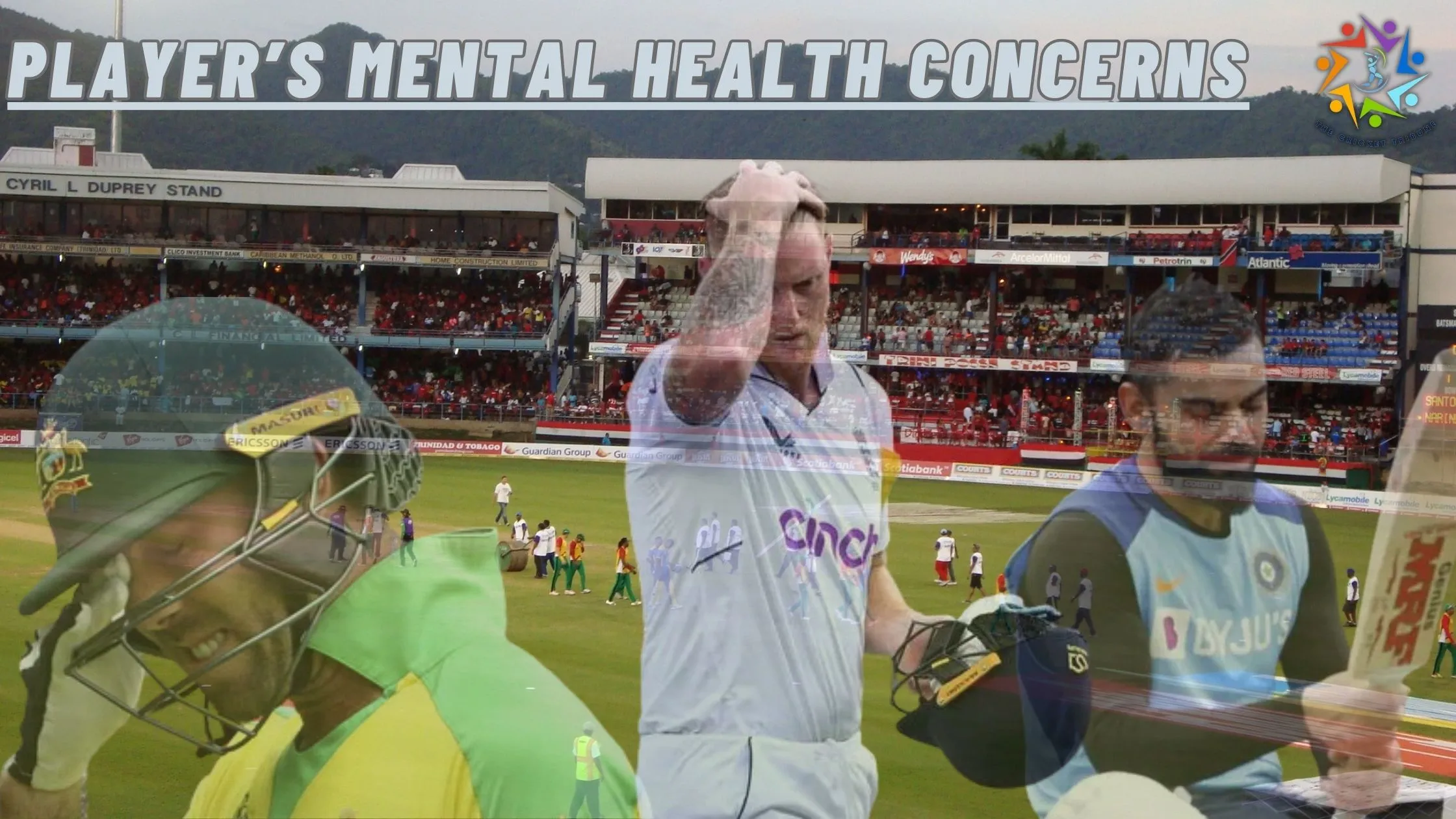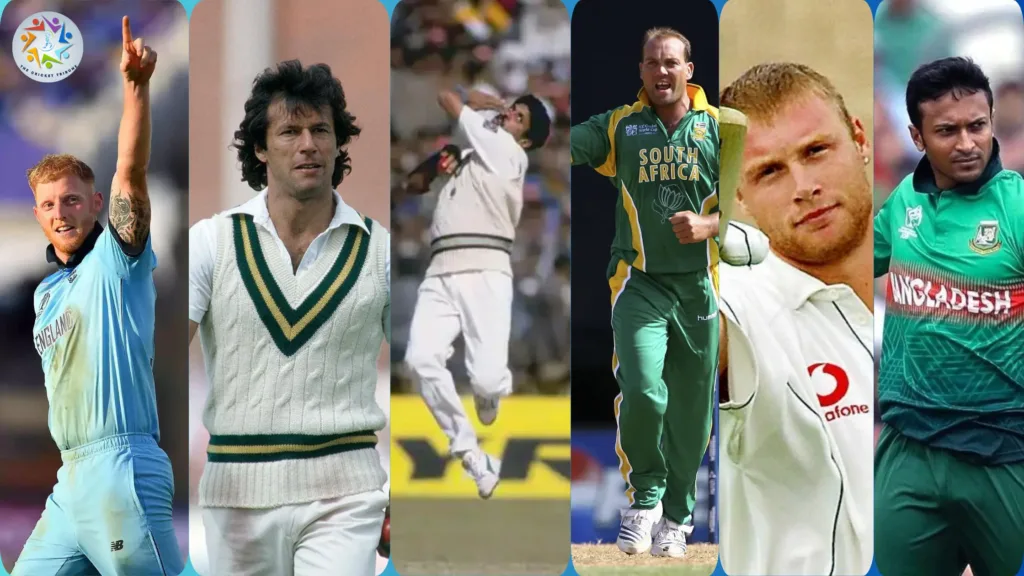Cricket has always been considered a game of strength, skill, endurance, and mental strength. The pressure of batting for hours and the pressure of expectations from millions of fans. Cricketers face a lot of stress due to these expectations and pressure of performance. As the spotlight is shining brighter on cricket it is becoming a famous sport around the world, and the conversation around player development and mental health awareness in cricket has also gained importance.
Over the years, the relentless pressure has revealed the effects of professional cricket on the mental health of players. The rise of mental health awareness in cricket is not just a trend, but an essential change which was important. So, we can learn how we observe and care for the well-being of players.
The Increasing Pressure on Modern Cricketers
In the past, cricket was seen mostly as a physical challenge. Trainings were only focused on fitness, skill, and strategy. However, the modern era of cricket has grown into something far more demanding. Players now face a packed schedule of matches, high media coverage, and personal pressures that were once hidden behind the scenes. This can lead to breakdown, anxiety, and depression, conditions that are very common among professional players today.
The introduction of global leagues like the Indian Premier League (IPL), Big Bash League (BBL), Pakistan Super League (PSL), and Caribbean Premier League (CPL) and international tours means that players mostly spend months away from their home and families. This continuous travel, combined with the pressure of performance in every match, increases the risk of mental health issues. It’s no wonder that conversations around player welfare in cricket have started to take center stage. Organizations and governing bodies stepping in to offer mental health support to their top players.
High-Profile Cricketers Opening Up
One of the reasons that mental health awareness in cricket is gaining importance is due to the courage of top players who have openly discussed their struggles. Cricketers such as Virat Kohli, Ben Stokes, Babar Azam, Pat Cummins and Glenn Maxwell have publicly shared their experiences with mental health, shedding light on an issue that was once stigmatized.
In 2019, Ben Stokes, England’s star all-rounder, took a break from cricket to focus on his mental health. It sparked widespread discussions about the pressures that come with being a top-level cricketer. His decision to step away from the game highlighted that even the most successful players are not strong enough to bear the mental strain.
Similarly, Australian cricketer Glenn Maxwell took a mental health break, revealing that the constant pressure to perform had put him down. His openness sparked conversations not only among his fellow players but also with fans and the media, who began to realize the human side of their heroes.
Babar Azam also faced this while he was the captain of the Pakistan team, and he met with multiple failures in the ICC tournaments. The fans and team management even team members were not happy with him, and he decided to step down from the captaincy and take a break.
These examples have had a good impact which led to the acceptance of mental health breaks and support within cricket. It has encouraged other cricketers to seek help when needed, without fearing that it might damage their careers or reputations.
The Impact of Public Pressure on Cricketers
Cricketers today not only face the pressure of performance on the field but are also under the constant observation of the public and media. In the time of social media, every performance is analyzed, every decision is questioned by the audience and media, and any mistake is highlighted. The intense criticism from fans and analysts can significantly affect a player’s mental health.
Social media Platforms like Twitter, Instagram, and Facebook provide immediate feedback from fans. When positive performances are praised by the fans, failures are trolled very harshly by the fans on these social media platforms. Sometimes abusive criticism and below-the-belt things are written about the players just because of some bad performances.

For young players, in particular, this public analysis can be very harmful, affecting their confidence and mental health. Many players have spoken about how social media pressure has impacted their lives, leading to anxiety, stress, and in some cases, depression. That is the reason why players are advised to stay away from social media during important tournaments and tours.
In response to these issues, some players have taken breaks from social media or hired professionals to manage their accounts. This helps to create a buffer between the player and the often-unfriendly social media environment. The cricketing community is also becoming aware of the need to protect players from the negative impact of public criticism. Many experts suggest that social media platforms should introduce strict policies to prevent abusive criticism.
The Role of Governing Bodies in Promoting Player Welfare
Given the rising concern over mental health in cricket, several cricket boards and governing bodies are taking steps to prioritize player welfare. Players are very important for the boards they must protect their top players from mental health issues. The International Cricket Council (ICC) and national boards like England and Wales Cricket Board (ECB) and Cricket Australia (CA) have introduced mental health support systems for players.
These initiatives provide access to mental health professionals and create programs to educate players about the importance of self-care and mental health. For example, the ECB has worked closely with charities like Mind to promote mental health awareness in cricket. Similarly, Cricket Australia has implemented well-being programs that focus on mental health education and support for cricketers. Australia and England are more supportive for their players
Some boards have begun to adjust their schedules to reduce player burnout. This includes providing longer recovery periods between tours and managing workload better. As the issue of mental health becomes more important it is likely that more cricket boards will follow the footsteps in prioritizing player welfare.
Workload management is a very important step in player welfare. As the over-packed schedule of tours and leagues, players get fatigued due to traveling and pressure of performance. Now boards give rest to the players in less important games and don’t allow them to play all the leagues. Boards give NOCs for specific leagues only.
The Role of Sports Psychologists
A growing number of cricket teams are hiring sports psychologists to help players manage the mental pressures. These professionals help cricketers with mental wellbeing sessions to cope with stress, build resilience, and maintain a healthy work-life balance. Sports psychologists not only help in developing mental toughness but also provide crucial support during times of mental health issues.
Working closely with players, sports psychologists assist in areas like handling anxiety, improving focus, and overcoming performance pressure. Teams that include mental health professionals in their setup are finding that players can manage stress better. Players are recovering more quickly from setbacks, and perform more consistently on the field.
The Importance of Mental Health Awareness and Support
Mental health awareness in cricket is important for creating a supportive environment. Players should feel comfortable discussing their struggles with on-field or off-the-field issues. Cricketers might have feared that admitting to mental health issues would be seen as a sign of weakness. However, with increasing awareness and openness in cricket, players now feel more comfortable seeking help for mental health issues.
The media, fans, and cricket boards all play a crucial role in normalizing mental health awareness. When mental health is discussed openly, it removes the stigma associated with it that revealing mental health issues is a weakness. It allows more players to come forward when they need help.
Conclusion
Cricket, like all other sports, is as much a mental game as it is physical. With the growing spotlight on mental health in cricket, the sport is beginning to take the necessary steps to ensure that players’ welfare is the priority. From sports psychologists and mental health programs to the admissions of high-profile cricketers, the environment is changing.
Mental health awareness in cricket is no longer just a trend. It’s an important part of the game’s evolution toward a more compassionate and supportive environment. Ensuring the mental welfare of cricketers is essential not only for the players themselves but for the future of cricket.
By encouraging a culture of openness and understanding, we can ensure that cricket continues to thrive. Players should not be just physically fit but mentally healthy and strong. The sport has made significant progress, but the journey to fully integrating mental health awareness into every aspect of cricket is still under process. With endless efforts, player welfare will become an inseparable part of cricket.
For reference: https://www.forbes.com/sites/timellis/2024/01/26/cricket-still-pushes-mental-health-of-its-players-to-their-limits/
For more informative articles: Articles



